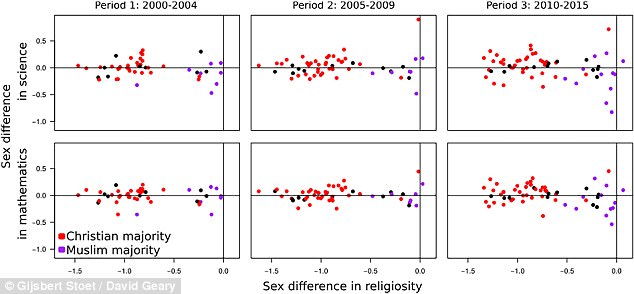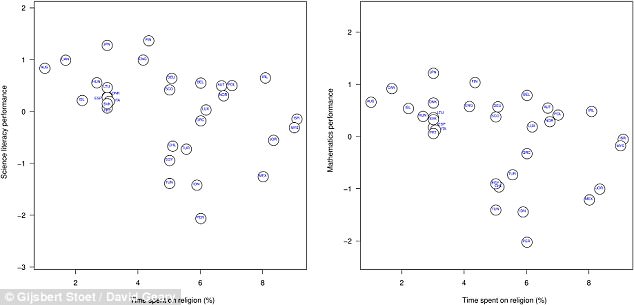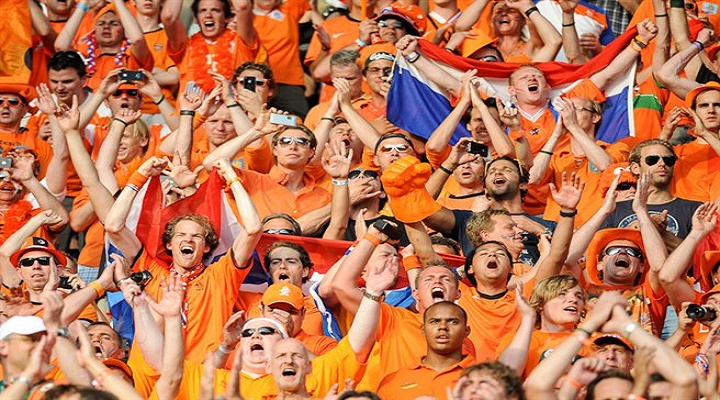Researchers analyzed data on religion and school results from 76 countries on all continents to investigated if there is a relationship between religiosity and performance in school.

They found that the more religious the society is, the lower the performance was in school.
“The findings support the idea of a ‘displacement hypothesis’ that when children spent more of their time on religion, they will spend less time on other things.”
– Gijsbert Stoet, study author, and Professor of Psychology at Leeds Beckett University
It appears not to matter which religion you dedicate your time to, only how religious you are.
Stoet points out that science and mathematics are key elements to building modern societies. Therefore, a secular approach is important, which keeps religion within the private sphere.
“Science and mathematics education are key for modern societies. Our research suggests that education might benefit from a stronger secular approach.”
“Given the strong negative link between religiosity and educational performance, governments might be able to raise educational standards and so standards of living by keeping religion out of schools and out of educational policy-making,”
The study also confirms previous research showing that women are more religious than men, but this was not associated with school performance.
The five least religious countries of the 82 countries surveyed, were, the Czech Republic, Japan, Estonia, Sweden and Norway, and the five most religious, Qatar, Indonesia, Egypt, Yemen, and Jordan.
The study is based on data from PISA, TIMSS, the World Values Survey, the European Values Survey and the Human Development Report for 2000-2015.
The results have been published in the scientific journal Intelligence.
Countries by religousisy ranking
- Czech Republic 2.4287
- Japan 2.9006
- Estonia 3.5331
- Sweden 3.5460
- Norway 3.8893
- France 3.9153
- Australia 3.9772
- Latvia 4.0265
- New Zealand 4.1000
- Vietnam 4.1414
- Luxembourg 4.1451
- Hong Kong 4.1506
- Hungary 4.1513
- United Kingdom 4.1638
- Denmark 4.2019
- Germany 4.2114
- Spain 4.4118
- Russian Federation 4.5171
- Bulgaria 4.5208
- Uruguay 4.5341
- Netherlands 4.5381
- Slovenia 4.6142
- Israel 4.7425
- Belgium 4.7429
- Austria 4.9865
- Switzerland 5.1248
- Finland 5.2007
- Korea 5.2338
- Taiwan 5.2382
- Ukraine 5.2607
- Lithuania 5.3902
- Ireland 5.4193
- Kazakhstan 5.5005
- Portugal 5.5815
- Iceland 5.6637
- Canada 5.8881
- Slovak Republic 5.9166
- Montenegro 6.0029
- Croatia 6.1819
- Argentina 6.2355
- Italy 6.2660
- Serbia 6.3655
- Azerbaijan 6.4765
- Albania 6.4769
- Chile 6.6069
- Greece 6.6493
- Poland 6.6810
- Moldova 6.7013
- Singapore 6.8898
- Kyrgyzstan 6.8909
- United States 7.1149
- Cyprus 7.1378
- Macedonia 7.2942
- Bahrain 7.4265
- Lebanon 7.4931
- Romania 7.5672
- Peru 7.5846
- Brazil 7.8896
- Colombia 8.0000
- Armenia 8.0756
- Mexico 8.0979
- Thailand 8.1705
- Turkey 8.1882
- South Africa 8.3394
- Trinidad and Tobago 8.8732
- Puerto Rico (USA) 8.9150
- Iran, Islamic Rep. 9.0828
- Malaysia 9.2705
- Georgia 9.2756
- Philippines 9.4454
- Palestinian Nat?l Auth. 9.4510
- Saudi Arabia 9.5341
- Kuwait 9.5450
- Ghana 9.6143
- Algeria 9.6354
- Morocco 9.6697
- Tunisia 9.7808
- Jordan 9.7933
- Yemen 9.7956
- Egypt 9.8369
- Indonesia 9.8501
- Qatar 9.9553
Reference:
Gijsbert Stoeta, David C. Gearyb, Students in countries with higher levels of religiosity perform lower in science and mathematics http://doi.org/10.1016/j.intell.2017.03.001













![OpenAI. (2025). ChatGPT [Large language model]. https://chatgpt.com](https://www.illustratedcuriosity.com/files/media/55136/b1b0b614-5b72-486c-901d-ff244549d67a-350x260.webp)
![OpenAI. (2025). ChatGPT [Large language model]. https://chatgpt.com](https://www.illustratedcuriosity.com/files/media/55124/79bc18fa-f616-4951-856f-cc724ad5d497-350x260.webp)
![OpenAI. (2025). ChatGPT [Large language model]. https://chatgpt.com](https://www.illustratedcuriosity.com/files/media/55099/2638a982-b4de-4913-8a1c-1479df352bf3-350x260.webp)








